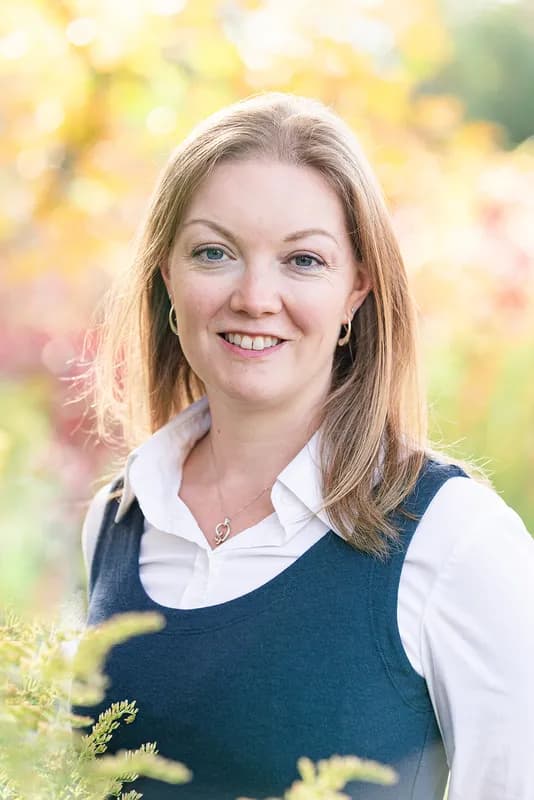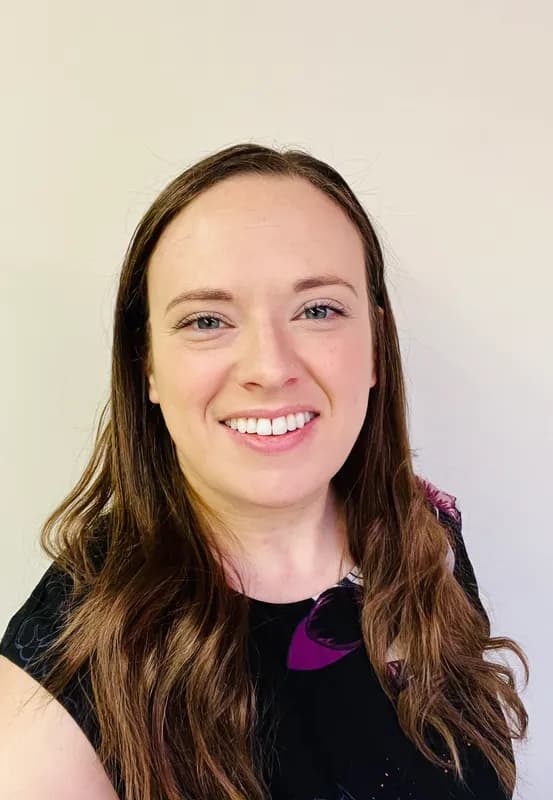Therapy for couple relationships

Something's changed, and you both feel it. Maybe the spark has dimmed, or life's demands have pushed you into separate corners. You still care about each other, but the relationship doesn't feel like it used to. Whether you're dealing with trust issues, growing apart, major life transitions, or simply lost connection, you don't have to figure it out alone. Let's explore how couples therapy can help you rebuild what matters most.
What is couples relationship therapy?
More than just talking about problems
Couples therapy is not about listing grievances while a therapist mediates. It is a structured process that helps you understand each other more clearly, interrupt harmful patterns, and rebuild the connection that brought you together. Your therapist guides you through difficult emotions, uncovers deeper issues, and teaches practical tools that strengthen your relationship. The aim is not perfection but a partnership where both people feel valued, understood, and secure enough to be honest, resolve conflict, and work as a team rather than adversaries.
Common relationship challenges that bring couples to therapy
Couples come to therapy for many reasons. Trust may have been broken, or distance may have grown after years focused on work, parenting, or survival. Major transitions like becoming parents, career shifts, or retirement can create strain. Some partners face conflict about money, sex, parenting, or long-term plans, while others struggle with cultural differences, in-law dynamics, or old wounds from past relationships. Relationship distress happens across all couples. The key factor is not avoiding problems but learning to face them together.
Relationship health in Canada
Sources:Statistics Canada, 2024 personal relationship satisfaction,Statistics Canada, 2025 family relationship satisfaction,Meta-analysis of couple therapy outcomes.
The toll of relationship distress
Emotional and mental health
Relationship distress affects your whole emotional world. You might feel anxious, depressed, or constantly on edge. Sleep becomes difficult when your mind keeps replaying arguments or worrying about the future. Many people describe feeling lonely even beside their partner or grieving the connection they once had.
Physical health consequences
Ongoing relationship stress takes a real toll on your body. Headaches, digestive issues, lowered immunity, and stress-related conditions like high blood pressure often appear when conflict becomes chronic. Sexual intimacy also declines when emotional closeness breaks down, deepening the sense of disconnection.
Impact on children and family
Children pick up on tension even when arguments are not visible. They may withdraw, act out, or worry about separation. Some develop anxiety or behavioural challenges linked to parental conflict. The home atmosphere becomes strained as everyone walks on eggshells, and kids often feel pressure to fix what is happening.
Work and social life disruption
Relationship stress makes it hard to focus at work. Productivity drops, irritability increases, and you may withdraw from colleagues and friends because you feel overwhelmed or embarrassed. Many people isolate during relationship crises, losing support when they need it most.
How couples therapy strengthens relationships
Building a foundation for lasting change
Couples therapy creates a space where both partners feel safe enough to be honest. Your therapist helps you move beyond surface arguments to understand what's really happening underneath—the unmet needs, old wounds, and fears driving your conflicts. You'll learn to see your partner's perspective without abandoning your own, break cycles that keep you stuck, and develop skills that serve you long after therapy ends.
What happens during couples therapy
Couples sessions usually run 50 to 90 minutes and happen weekly or biweekly. Your therapist gets to know each person’s perspective, observes how you interact, identifies patterns you may not see, and teaches healthier ways of communicating. You take an active role by practicing new skills during sessions, completing connection-building exercises, and trying homework between visits. Some sessions focus on practical tools like managing conflict or rebuilding trust, while others explore deeper emotional triggers. Your therapist adjusts the approach based on what your relationship needs most.
Therapeutic approaches for couples
Emotionally Focused Therapy (EFT)
EFT has strong research support with 70-75% success rates. This approach helps you understand the emotional patterns driving your conflicts. That argument about housework isn't really about dishes—it's about feeling valued or secure. EFT creates healing conversations where you can share vulnerable feelings and have them met with understanding instead of defensiveness. Couples learn to become each other's safe haven again.
Gottman Method Couples Therapy
Based on four decades of research with thousands of couples, the Gottman Method provides practical, research-backed tools for strengthening relationships. You'll learn to build friendship and intimacy, manage conflict constructively, and create shared meaning. The approach addresses specific issues like rebuilding trust after betrayal, managing gridlocked conflicts, and deepening emotional connection.
Imago Relationship Therapy
Imago explores how childhood experiences shape adult relationships and why we choose the partners we do. You'll understand why certain behaviors trigger such intense reactions—often they're connected to old wounds seeking healing. Through structured dialogue exercises, you learn to consciously create the relationship you want rather than unconsciously recreating past pain. This approach is particularly helpful for couples stuck in repetitive, seemingly irrational conflicts.
Integrative Behavioral Couples Therapy (IBCT)
IBCT balances acceptance and change. Some issues in relationships need solving; others need accepting. This approach helps you distinguish between the two. You'll learn to understand differences without trying to change your partner into someone they're not, while also making specific behavioral changes that improve daily life.
Psychodynamic Couples Therapy
This approach examines unconscious patterns and past experiences influencing your relationship. How do your families of origin affect how you love? What defense mechanisms keep you from true intimacy? Psychodynamic therapy helps you understand the deeper psychological dynamics at play, creating insight that allows for meaningful change. It's particularly useful when couples feel stuck repeating patterns despite best intentions.
The therapy journey: what to expect
Initial phase: assessment and goal-setting
Early sessions focus on understanding your relationship in depth. Your therapist explores how you met, what drew you together, when challenges began, and what each of you hopes therapy will achieve. They may use questionnaires to assess satisfaction, conflict patterns, or attachment styles. Individual sessions with each partner help uncover personal histories, mental health concerns, and sensitive issues such as infidelity while maintaining transparency. By the end of this phase, you’ll have clear goals and a plan tailored to your relationship.
Middle phase: active intervention and skill-building
This is the stage where change takes shape. You practice new communication tools, learn healthier ways to manage conflict, and explore emotional triggers with your therapist’s guidance. Sessions may include real-time coaching during difficult conversations, and homework might involve date nights, structured exercises, or practising skills between sessions. Expect a mix of breakthroughs and setbacks as you build confidence; your therapist helps you stay grounded and understand that progress isn’t linear.
Timeline and progress markers
Many couples attend 12 to 24 sessions, though duration depends on the nature and severity of issues. Small improvements often appear within the first month, such as navigating a hard conversation more calmly or stopping an argument from escalating. More meaningful shifts typically emerge by sessions 10 to 15, including feeling more connected, fighting less intensely, and understanding each other’s patterns more clearly. Progress means handling disagreements without damage and feeling safer to express needs, not eliminating conflict entirely.
Ending therapy and maintaining progress
Therapy wraps up when you’ve reached your goals and can manage challenges on your own. Your therapist helps you identify early warning signs of old patterns returning and creates a plan for addressing them. Many couples schedule occasional check-ins during stressful times to stay on track. Finishing therapy doesn’t mean your relationship becomes flawless; it means you’ve built the skills and connection needed to repair conflicts, stay emotionally close, and face future challenges as a team.
Find a therapist who specializes in couple relationships
Choosing the right therapist matters. Each province in Canada has its own regulations, which is why working with a recognized professional can make a real difference in your care. Stellocare takes the uncertainty out of the process by listing only verified therapists you can trust.
The right therapist for you
No therapists found with these specialties in Ontario.
Try selecting a different province.Strengthening your relationship outside therapy
Daily connection practices
Rituals of connection
Strong couples maintain small daily and weekly rituals that add up to about six hours of intentional connection each week. This includes short goodbye and hello moments, daily check-ins, a weekly date, and regular appreciation. These small habits keep you close and prevent slow emotional drift.
Turning toward bids for connection
Partners constantly make small bids for attention or support. Healthy couples respond to these bids most of the time, even with a brief acknowledgment. Turning toward strengthens connection, while ignoring or rejecting bids erodes it. Noticing and responding to these small moments builds relationship stability.
Expressing appreciation and admiration
Appreciation keeps relationships warm. Make a habit of naming specific things your partner does and why they matter to you. Detailed gratitude lands more deeply than general praise and helps shift the relationship from criticism to appreciation.
Physical affection without agenda
Non-sexual touch builds closeness. Long hugs, holding hands, gentle touch, and slow kisses create safety and connection without pressure. Regular physical affection keeps relationships warm and emotionally secure.
Building deeper intimacy
Vulnerability and emotional sharing
Intimacy deepens when you share fears, hopes, and needs rather than only daily updates. Try offering one vulnerable truth each week and respond to your partner’s vulnerability with gentleness instead of fixing or judging. Even a simple “Thank you for telling me” builds safety and closeness.
Keeping curiosity alive
Curiosity fades when partners assume they already know each other. Stay interested by asking open questions like what they are thinking about, what excites them, or what they find hard lately. Listen as if you are rediscovering them, because people change over time.
Creating shared meaning
Strong couples build shared purpose through routines, traditions, aligned values, and supporting each other’s dreams. Talk regularly about what kind of relationship you want to create and what matters most to both of you. Shared meaning turns partnership into a team.
Managing differences constructively
Most conflicts are rooted in ongoing differences rather than solvable problems. The goal is respectful dialogue, not full agreement. Explore the values beneath each person’s position, find areas where you can be flexible, and accept that some differences are part of loving who your partner truly is.
Common questions about couples therapy
When should we start couples therapy?
Start when problems first feel persistent rather than waiting until resentment builds. Go if you're repeating the same arguments, feeling disconnected, avoiding hard topics, losing intimacy, or wanting to strengthen your relationship before issues grow. Early help is far easier than repair.
What if we've already tried therapy before and it didn't work?
A past attempt doesn't mean therapy can't help. Therapists vary in skill and approach, and you may have been in a different place emotionally. Think about what wasn’t helpful and seek someone with a different method or specialization. Many couples find success on their second or third try.
Can therapy help if only one person wants to be there?
Yes, though it’s harder. One motivated partner can shift dynamics, and a good therapist keeps both people engaged without blaming either. Many reluctant partners become open once sessions feel safe and useful. If one person refuses entirely, individual therapy can still help you make decisions.
How much does couples therapy cost in Canada?
Most therapists charge between $150 and $300 per session, often $180 to $220 for 60 to 90 minutes. Some insurance plans cover couples work, and some therapists offer sliding scales. It’s an investment, but often far less costly than years of distress or separation.
Will the therapist tell us to break up?
No. Ethical therapists don’t make that decision for you. They help you understand your relationship and choose intentionally. Some couples stay together, some separate, and therapy supports either path. If separation happens, a therapist can help you do it respectfully, especially when kids are involved.
What if we can't agree on what the problems are?
That's common. Each partner experiences the relationship from their own lens. A good therapist helps you understand both perspectives without deciding who’s right. Often, each view holds part of the truth. Learning to hold space for both realities is a core part of couples work.
Is it too late for therapy if we're already talking about separation?
Not always. Some couples rebuild even at the edge of separation, while others use therapy to part more kindly. Discernment counselling helps couples decide whether to repair, separate, or pause. Even when separation is chosen, therapy reduces harm and supports healthier co-parenting.
Related concerns
References
- The Gottman Institute. (2024). Retrieved from https://www.gottman.com
- Whisman, M. A., & Uebelacker, L. A. (2009). Prospective associations between marital discord and depressive symptoms in middle-aged and older adults. Psychology and Aging, 24(1), 184-189. Retrieved from https://pubmed.ncbi.nlm.nih.gov/19290750/
- International Centre for Excellence in Emotionally Focused Therapy (ICEEFT). (2024). EFT Research. Retrieved from https://iceeft.com/eft-research/
- The Gottman Institute. (2024). The Gottman Method. Retrieved from https://www.gottman.com/about/the-gottman-method/
- Christensen, A., Atkins, D. C., Yi, J., Baucom, D. H., & George, W. H. (2006). Couple and individual adjustment for 2 years following a randomized clinical trial comparing traditional versus integrative behavioral couple therapy. Journal of Consulting and Clinical Psychology, 74(6), 1180-1191. Retrieved from https://pubmed.ncbi.nlm.nih.gov/17154747/
- The Gottman Institute. (2024). The 6-Hour-a-Week Magic Formula for Relationship Success. Retrieved from https://www.gottman.com/blog/6-hours-a-week-to-a-better-relationship/
- Canadian Counselling and Psychotherapy Association. (2024). Find a Certified Counsellor. Retrieved from https://www.ccpa-accp.ca/
- Doherty, W. J. (2011). Discernment Counseling: An Alternative to Traditional Couples Therapy. Retrieved from https://www.discernmentcounseling.com/
About Stellocare
Stellocare is a Canadian platform where you can find the best fit therapist for you. Search the right thperaists now by asking our AI, browsing our list, or finding our social workers for personal referral.

Kaycee Bevans
Registered Provisional Psychologist (AB)

Jennica Campbell
Registered Therapeutic Counsellor (BC)

Emily Hiram
Registered Psychotherapist (ON)

Vrushalee Nachar
Registered Psychotherapist (ON)

Jay Hinton
Canadian Certified Counsellor

Cameron Whatram
Registered Clinical Counsellor (BC)

Rebecca Sun
Registered Clinical Counsellor (BC)

Gauri Mathur
Registered Psychotherapist (ON)

Carissa Cochrane
Canadian Certified Counsellor

Victoria Brassard-Monahan
Registered Psychotherapist (Qualifying) (ON)

Stephanie Neshcov
Registered Psychotherapist (Qualifying) (ON)

Victoria Jacobs
Registered Psychotherapist (ON)

Alexia Carbone
Registered Psychotherapist (Qualifying) (ON)

Alex Choi
Registered Social Worker (ON)

Tiphanie Routier
Thérapeute en relation d'aide (QC)

Spencer Nageleisen
Registered Psychotherapist (ON)

Riffat Yusaf
Registered Psychotherapist (ON)

Andrea Laurie
Canadian Certified Counsellor

Shiny Yang
Occupational Therapist (ON)

Victoria Nyman
Registered Psychotherapist (Qualifying) (ON)

Kaycee Bevans
Registered Provisional Psychologist (AB)

Jennica Campbell
Registered Therapeutic Counsellor (BC)

Emily Hiram
Registered Psychotherapist (ON)

Vrushalee Nachar
Registered Psychotherapist (ON)

Jay Hinton
Canadian Certified Counsellor

Cameron Whatram
Registered Clinical Counsellor (BC)

Rebecca Sun
Registered Clinical Counsellor (BC)

Gauri Mathur
Registered Psychotherapist (ON)

Carissa Cochrane
Canadian Certified Counsellor

Victoria Brassard-Monahan
Registered Psychotherapist (Qualifying) (ON)

Stephanie Neshcov
Registered Psychotherapist (Qualifying) (ON)

Victoria Jacobs
Registered Psychotherapist (ON)

Alexia Carbone
Registered Psychotherapist (Qualifying) (ON)

Alex Choi
Registered Social Worker (ON)

Tiphanie Routier
Thérapeute en relation d'aide (QC)

Spencer Nageleisen
Registered Psychotherapist (ON)

Riffat Yusaf
Registered Psychotherapist (ON)

Andrea Laurie
Canadian Certified Counsellor

Shiny Yang
Occupational Therapist (ON)

Victoria Nyman
Registered Psychotherapist (Qualifying) (ON)

